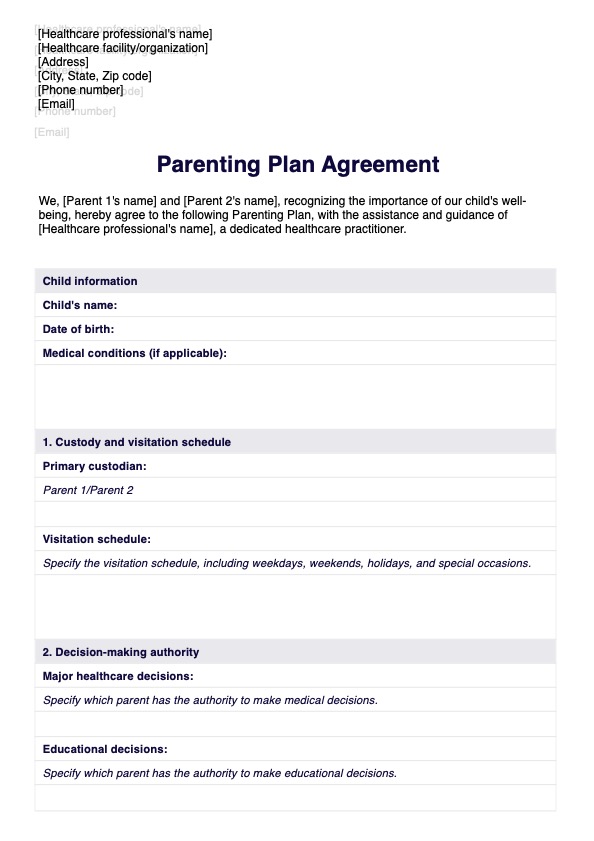A Parenting Plan is essential as it provides structure and clarity for co-parents, reduces conflicts, and prioritizes the child's best interests. It fosters a child-centric approach, promoting stability and emotional well-being during challenging family transitions.

Parenting Plan
Craft a comprehensive parenting plan to ensure optimal child development and co-parenting harmony. Access our free PDF template and example now.
Parenting Plan Template
Commonly asked questions
Parents going through a divorce, separation, or any situation where child custody arrangements need to be established should create a Parenting Plan. Legal professionals, mediators, or healthcare practitioners can assist in the process.
A comprehensive Parenting Plan should cover custody arrangements, visitation schedules, decision-making authority (medical, educational, religious), communication methods, medical care, financial support, travel protocols, and dispute-resolution procedures.
EHR and practice management software
Get started for free
*No credit card required
Free
$0/usd
Unlimited clients
Telehealth
1GB of storage
Client portal text
Automated billing and online payments











